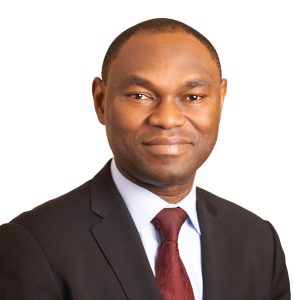ABUJA, Nigeria — Kingsley Obiora, the Deputy Governor of the Central Bank of Nigeria, CBN, in charge of economic policy, was arrested on Friday, September 1, 2023, by the Department of State Services, DSS, amid allegations of financial mismanagement.
His arrest is part of an expanding investigation into the apex bank’s activities under the stewardship of Godwin Emefiele, the recently suspended CBN governor.
“Mr. Obiora’s arrest is indeed a substantial development in what is becoming an increasingly complicated investigation,” said Abike Dada, a senior economist and financial analyst based in Lagos.
“With the Deputy Governor now involved, it’s clear that the probe is leaving no stone unturned.”

Emefiele has been in custody since June 10, 2023, just a day after President Bola Tinubu removed him from office, deepening concerns about governance and financial oversight within one of Africa’s most crucial economic institutions.
In July, President Tinubu appointed Jim Obazee, a special investigator, to scrutinize the activities of the apex bank, signaling a broadening scope in the government’s attempt to understand the alleged mismanagement.
Obazee’s appointment was met with a mix of concern and optimism; some praised the administration’s dedication to accountability, while others feared it was an overreach that could undermine the bank’s independence.
Peter Afunanya, the spokesperson for the DSS, and Dr. Isa Abdulmumin, the spokesperson for the CBN, have not yet responded to inquiries for further information.
“As Africa’s largest economy, Nigeria has often set the tone for financial governance on the continent,” added Dada. “The outcome of this probe will likely reverberate far beyond Nigeria’s borders.”
While the arrest of high-ranking officials at the CBN is an alarming indicator of potential misconduct at the bank, it’s also a sign of an administration willing to make bold moves to root out corruption.
As the investigation continues, domestic and international stakeholders keenly watch how the story unfolds, knowing that the repercussions could impact Nigeria’s financial sector and international standing.
As for what comes next, analysts are holding their breath. “This could be a watershed moment for Nigeria’s financial governance,” said Dada.
“Or it could be a Pandora’s box that, once opened, could cause more problems than it solves.”







